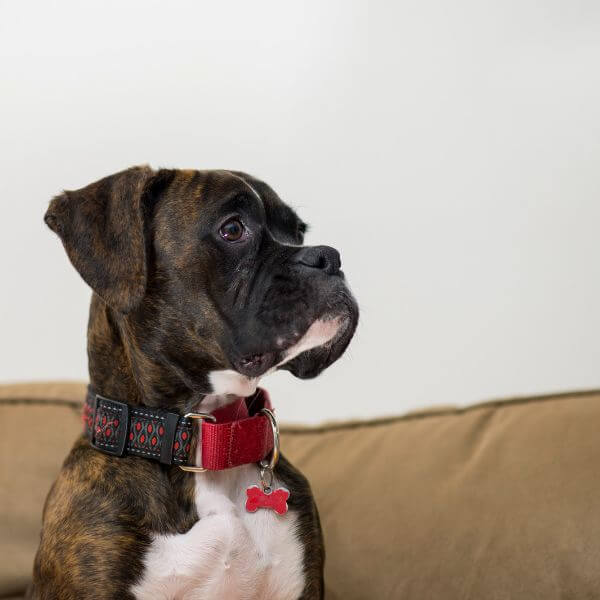PetMeetly helps you adopt a Boxer: Find Your Perfect Companion Today!
Petmeetly is an exceptional website that connects animal lovers and pet owners, providing a reliable service for those seeking to adopt or rehome Boxer. Our primary objective is to establish a community where individuals can find their perfect furry companion while also offering a safe and caring haven for animals in need.
With Petmeetly, locating your new furry friend has never been easier. You can utilize our platform to browse available Boxers in your locality and connect with their owners. Our extensive search options make it simple to identify the Boxers that best fits your lifestyle and preferences.
Also, Petmeetly offers a perfect platform for finding your beloved Boxer a new, loving home if you decide to rehome them. Our platform is made to link you together with prospective adopters who are willing to give a Boxer a loving and responsible home. You may relax knowing that your pet is in capable care and will have a loving home.
Every pet needs a loving home, and at Petmeetly we are dedicated to animal welfare. Join our community now to begin your hunt for the ideal canine friend or to support a Boxer in need.
Everything about Boxer

Height
Weight
Lifespan
Coat
LENGTH OF THE COAT
GROOMING AND SHEDDING
Energy
Barking
Intelligence
Adaptability and trainability
Affectionate with family
Good with young children
Good with other dogs and animals
Behavior towards strangers
Meet our Boxers
Decided to adopt a Boxer
It’s essential to carefully consider these aspects before introducing a Boxer dog into your home to make sure you can provide your new furry family member with a happy and healthy existence.
- Be prepared for a high-energy dog:
Boxers are known for having high levels of energy and require constant fun and exercise to keep them from becoming bored and acting out destructively. Make sure you have the time and resources to give your Boxer a lot of exercises.
- Consider their sensitivity:
A sensitive breed like boxers may experience anxiety or nervousness if left alone for an extended amount of time. Use gentle and patient training strategies since they also respond well to positive reinforcement training methods.
- Be prepared for drooling:
Boxers are noted for their profuse drooling, particularly when they are eager or looking forward to a meal. To avoid stains and odors, make sure to keep plenty of towels on hand and constantly clean up drool.
- Socialize early:
Early socialisation is important because boxers, if not properly socializedsocializationthe, might become apprehensive of strangers and aggressive towards other dogs. To aid in the development of appropriate social skills in your Boxer, make sure to expose them to a variety of people, places, and circumstances from an early age.
- Evaluate their medical conditions:
Boxers are more likely to have conditions like hip dysplasia, cardiac difficulties, and cancer. To assist avoid or treat these health issues, it is crucial to offer correct nutrition, exercise, and veterinarian care.
- Be prepared for their affectionate nature:
Boxers are known for their loyalty to and affection for their families, so be prepared for that. They frequently want to be near their owners and could experience anxiety if left alone for extended periods.
We put together a checklist to prepare you for your new Boxer and to make your adoption process safe and stress-free.
We put together a checklist of essential factors to consider for a smooth and safe transfer of your Boxer to the new owner.
